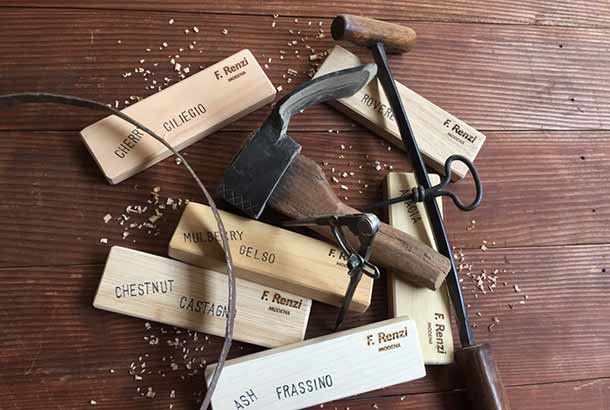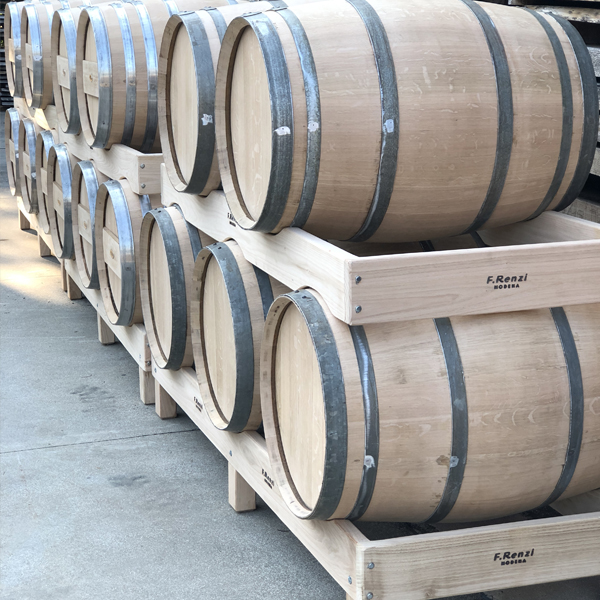Wood seasoning
There are two very different methods to season wood, for costs, times of use, and final quality obtained.
The method that we consider the best from all points of view is undoubtedly natural seasoning, obviously it is also the one that needs much longer times to reach a good result (several years), plus higher costs of realisation, but it allows you to season the wood by improving the barrel's stability requirements, during temperature changes (for the production of Balsamic Vinegar) and yielding to the ageing content, the best aromas and flavours, so as to obtain a high-quality product.
The other potential method consists of using a mechanical dryer. The wood is subjected to forced and mechanical ventilation for a few months for its seasoning, certainly also much cheaper, but in the end, the result is a quality that does not adhere to the transfer of fragrances and aromas.
Origin of the wood
The geographical origin of the timber is of certain importance. There are forests with really suitable characteristics, whose wood is suitable for the production of barrels.
It is not advisable to use recycled wood from old and disused barrels.
Stave thickness
The staves' thickness is one of the parameters that most influence the strength and longevity of the barrel, also reducing the risk of the product leaking (loss).
Hoops
Especially if you have to produce Balsamic vinegar or various vinegars, it is essential to understand what materials the hoops are made of, which must compress and unite the staves that make up the barrel; these hoops, if constructed with "special” stainless steel and, therefore, well designed, offer a guarantee of durability over time, thanks to their ability to resist acetic corrosion, while the iron hoops, even if galvanised, will have an inferior duration and yield (in addition to having a less elegant aesthetic effect due to erosion and oxidation).
Skill and technical knowledge of the cooper
Good retention qualities of a barrel are given by the characteristics of materials as described above, but a not negligible detail is the cooper's ability to choose the right staves and assemble them in the best possible way.
Buy the best materials, learn about the best production processes that combined with the cooper’s experience and knowledge, are the logical consequence of high quality.




